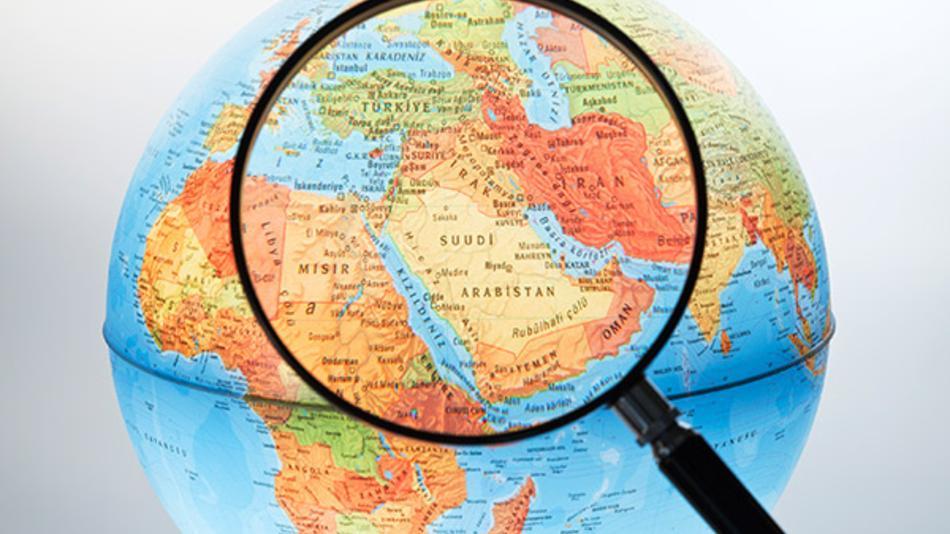U.S. President Donald Trump’s policy successes in the Middle East consist primarily of opening artificial floodgates and allowing for the passage of political currents already moving. That is not a small thing—Norwegian parliamentarian Christian Tybring-Gjedde agreed, nominating the president for the Nobel Peace Prize for the Israel-UAE normalization deal dubbed the “Abraham Accord.”
History is not a series of dates (high school students to the contrary). Dates are simply points in a process: July 4, 1776, D-Day and V-E Day, the “Abraham Accord” and the treaties with Egypt and Jordan that preceded it. They are the result of streams of percolating events, allowing for shifting times, tides and armies. A country or a politician or a terrorist can throw up a roadblock. It may forestall movement for a time, but ultimately, perceived national interest and the threats to those interests will undermine a wall that has lost its relevance.
American neutrality was firmly in control in 1939, but the tide turned to helping our British friends and Russian allies in 1940. Even before the attack on Pearl Harbor (another date) America had changed.
In the Middle East, the establishment of Israel in 1948 was accompanied by a unanimous wall of rejection and military action by the Arab states, but it lasted only until 1977, when Egypt found its national requirements in conflict with that wall. Anwar Sadat gave Israel what it sought and retrieved what he demanded. Another crack appeared when Jordan, having illegally occupied West Bank territory from 1949-1967, renounced its claim in 1988 and made peace with Israel in 1994.
For a while, the Arab states postured as the guardians and saviors of the Palestinians, but while the Arabs were posturing, the Iranian Revolution of 1979 was having an effect on the region—i.e., on the national interests of the Arab states. And the tides were shifting.
The destructive power of the Islamic Republic has crossed the Arabian Peninsula, decimated Iraq, Syria and Lebanon, and poured arms and money even into Sunni Hamas. The Gulf states need the “Abraham Accord” as much as or more than Israel does, though all of them need it more than they need to cling to outmoded models of politics. Over the past several years, quiet but meaningful dialogue has taken place between Israel and several Arab countries; as such, 72 years of rejection are crumbling.
There was predictable fallout both from Palestinian leadership and from American foreign-policy “experts.” The Palestinian prime minister, Muhammad Shtayyeh, declared the flight “a clear and a blatant violation of the Arab position toward the Arab-Israeli conflict. … We had hoped to see an Emirati plane landing in a liberated Jerusalem, but we live in a difficult Arab era.” Palestinian lawyer Diana Buttu claimed in The New York Times that “the U.A.E.-Israel flight is nothing to celebrate” and is a “slap in the face of the Palestinian people.”
A former U.S. ambassador to Israel wrote that the deal just “lowers the barriers” to recognition by others, seeming to miss that this particular barrier just disappeared altogether. A former State Department “peace processor” says the deal makes Israel forego the application of sovereignty in the West Bank territory, so it’s not really so great for Israel, but it “nevertheless represents an important contribution to peace-building between Arabs and Israelis. It stopped Israeli annexation, which would have likely ended the hope for two states.”
Foreign Policy magazine thinks the region is just too far gone.
A major “land for peace” advocate—whose mantra for years has been that he worked for Democrats and Republicans, pushing the idea that the Palestinian issue has to be resolved before Israel can expect acceptance from the Arab states—wrote recently that the Middle East just doesn’t matter as much any longer. “American leadership and exceptionalism cannot fix a broken Middle East or play a major role in leading it to a better future.” Shot down and out of business, his response is: “Never mind.”
He is, of course, wrong.
The accord is a major breakthrough, aided by American leadership and exceptionalism.
As the Arab states put their national priorities first—economic as well as security—wider swaths of cooperative activity emerge that will provide benefits for all the countries involved. One has only to look at the memorandum from the Abu Dhabi Department of Culture and Tourism, mandating that “all hotel establishments are advised to include kosher-food options on room service menus and at all food and beverage outlets in their establishments” and explaining the basic outline. A mashgiach has been dispatched. There are terrific video clips of children in the UAE singing and dancing with an Israeli flag on the wall, to be contrasted with Palestinian children taught by Hamas that Israel is to be destroyed, preferably through violence.
Saudi Arabia and Bahrain have permitted Israel’s national airline, El Al, to overfly its territory, and the Saudi Gazette carried a column titled, When Will the Palestinian Man Wake Up?
Not yet apparently. The Palestinian Authority demanded an Arab League vote to condemn the UAE.
The Arab League declined, and the wall crumbled.
Shoshana Bryen is senior director of the Jewish Policy Center and editor of inFOCUS Quarterly.

























